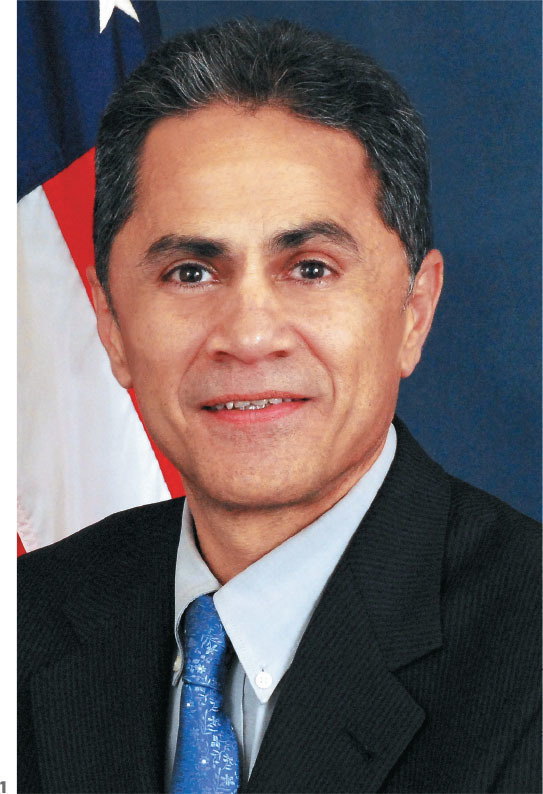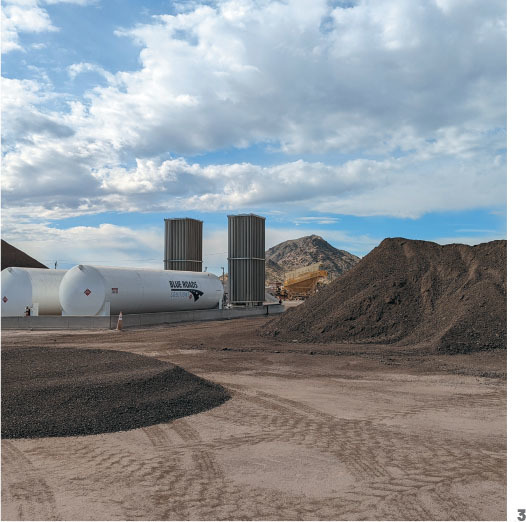Every Decade Counts
MORE THAN TEN YEARS LATER, FHWA STATE-BASED MODEL FOR DEPLOYING NEW IDEAS IS AS RELEVANT AS EVER.

When the U.S. Senate confirmed Victor Mendez as administrator of the Federal Highway Administration (FHWA) in July 2009, it must have felt like a capstone to a career that began in 1985 when Mendez joined the Arizona Department of Transportation (ADOT) as a transportation engineer. But the civil engineer’s star was still rising.
Just as he had worked his way up to lead ADOT as director, Mendez made the most of his time with FHWA, eventually leading to his confirmation as Deputy Secretary of Transportation in 2014.
Looking back, Mendez suggested that some industry skeptics typically view incoming agency heads and their new ideas as flashes in the pan, since so many initiatives are introduced that seldom stick. Still, he had an idea he felt had staying power, and so his team turned Every Day Counts (EDC) into a legacy program that continues to promote rapid deployment of innovations in the transportation sector more than a decade after its introduction.
“Believe it or not, making EDC a long-lasting initiative was one of our objectives as we were creating the concept. Some early skeptics would say, ‘It’s a new FHWA Administrator introducing another new initiative which will eventually fizzle out over time.’ However, my FHWA team had other ideas,” he said. “We specifically wanted EDC to outlast any administration regardless of who that would be. Our thought was, ‘Who’s going to argue against innovation?’”
Informed by his work on the burgeoning highways within the Phoenix Metroplex, and throughout the state, Mendez said the longevity of the program is tied to its creation as a state-based model. Plus, he had one other motivating factor. Every senator that he spoke with individually before his confirmation hearing asked him the age-old question, “Why does it take so long to deliver projects?” He understood that innovative solutions have to be implemented on the ground, but the invention of these ideas exists at all levels of the industry. The industry was ripe for a targeted and focused effort to address the question through innovative concepts and knowledge sharing.
“States traditionally want more flexibility; and less rules and regulations. My FHWA team decided to roll out innovations on a state-based, voluntary basis, not on a mandatory basis,” he said. “The innovation councils created in every state are critical to the deployment of the innovations that work best in their particular states.
“All of this fits my philosophy that what works best in Washington, D.C., may not work so well in Winslow, Arizona.”
But Mendez said he and his staff were also counting on innovation being a unifying force for future transportation administrations as the interest in ‘new’ would never fade, even after administration turnover.
“We rolled it out as a state-based initiative that included state, local and tribal governments, the private sector, academia, and the full support of FHWA because the excitement that innovation creates is strong,” he said. “That is what sustains the continued momentum for EDC with all the stakeholders.”
“EDC is an opportunity for all of us to discuss and maintain a focus on all facets of safety, which is our highest priority.”
Looking back at more than a decade’s worth of deployed innovations, Mendez said Every Day Counts has become a mechanism for discussing priorities, like safety, and a way to ensure all stakeholders are at the table when the agency introduces new approaches to manage infrastructure.
“EDC is an opportunity for all of us to discuss and maintain a focus on all facets of safety, which is our highest priority,” he said. “Collaborating and partnering with all transportation stakeholders is invaluable to help solve the challenges that we face in our everyday lives. The innovation councils have been instrumental in bringing together stakeholders at the state and local levels.”
Similar to how U.S. Supreme Court Justice Louis Brandeis characterized state legislatures as “laboratories of democracy” in 1932, Mendez envisioned state departments of transportation as infrastructure innovation labs where new ideas could be vetted before adoption.
“I know from experience that state DOTs, local governments, and the private sector are always searching for innovative and better ways to improve their processes and practices. I also know that sharing those innovations is not easy because everyone is busy with the daily grind,” he said. “EDC created an opportunity to develop a structure that encourages innovation at all levels of an organization and makes the sharing of innovations a focal point.”
It’s not lost on Mendez that many of the innovations EDC has deployed over the years – like warm-mix asphalt (WMA) in 2011, and environmental product declarations (EPDs) in 2023 – are often aimed at reducing greenhouse gas emissions. While the emphasis on emissions reduction has grown since his DOT tenure ended in 2017, he said EDC is wellplaced to continue bringing about the incremental changes that are needed to keep infrastructure sustainable.
“Collectively, we have to consider the impacts that transportation emissions have on climate and the environment,” he said. “We have the research, statistics, and data that provide answers. It is our challenge to continue innovating and delivering infrastructure in a manner that addresses these environmental concerns into the future. We have a lot of smart and intelligent people in our industry, and I am confident that we will continue to find solutions that make our infrastructure more sustainable to proactively address these issues.”
EPDs provide the data agencies need to start quantifying the embodied carbon and other environmental impacts associated with constructing and maintaining our country’s transportation infrastructure.
“With 35 states signing up to participate in the EPDs for Sustainable Project Delivery initiative, we can see the growing importance of embodied carbon for state governments,” said Joseph Shacat, NAPA’s Director of Sustainable Pavements. “We are fortunate that the FHWA is leaning on more than a decade’s worth of experience on this topic through the Sustainable Pavements Technical Working Group.”
Still, Mendez admits there has been a shift in politics since his federal tenure. While 84 percent of Congress voted in favor of the Fixing America’s Surface Transportation (FAST) Act, the nation’s landmark infrastructure law in 2015, the latest iteration, the Infrastructure Investment and Jobs Act (IIJA) became law with just better than 55 percent approval from congressional representatives in both houses.
“Throughout the years we have said that there are no Republican bridges or Democratic roads. Of course, politics will influence policy priorities throughout the nation. However, political polarization will definitely affect how the nation invests in infrastructure in the future,” he said.
“It is my sense that it will become more difficult to get the incredible increased levels of funding like we did under IIJA. I believe that funding at all levels of government will not only influence policy priorities, but it will also drive innovation. We will still need improved highways, public transportation, airports, ports, etc., in order to support a growing economy.
Those who innovate will be able to better overcome the political influences. At the end of the day, public and private sector organizations are judged on results, so they have to deliver in the most innovative and efficient manner possible.”Opens in modal lightbox
NO DAYS OFF
“The intended message is to excite, engage, empower, and instill a sense of urgency for all of us that are involved in delivering transportation infrastructure. Traditionally, we think about engineers, planners, and construction personnel when we talk about infrastructure, but there is also an entire structure behind the scenes that is critical to the delivery of transportation projects. In every company and agency we have accountants, attorneys, procurement professionals, etc., that also help the delivery process. We need to get everyone involved with their innovative ideas to help expedite the delivery process. For example, when I was at FHWA we invented availability payments. We could not have done that without the innovative ideas from our financial and legal professionals!”
Former U.S. Deputy Secretary of Transportation Victor Mendez on the meaning of Every Day Counts







